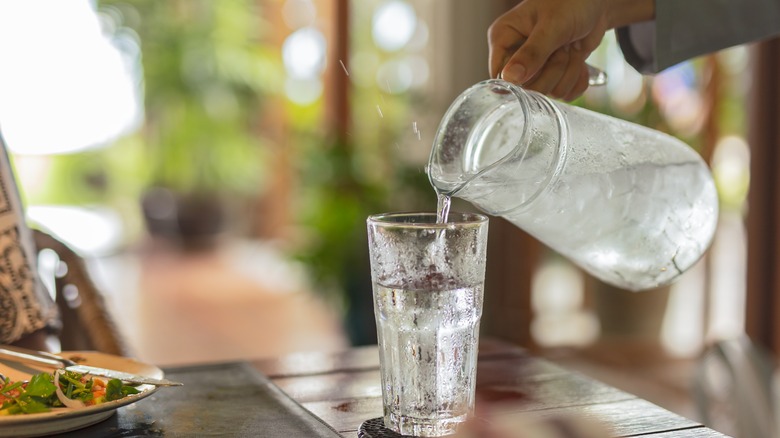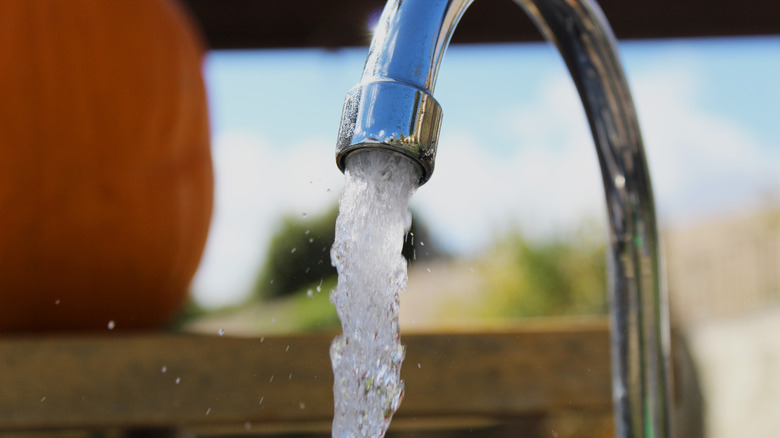Why The Flat Or Sparkling Water Question Is Inherently Deceptive
Maybe it happens as you're settling in at your table, perusing the menu. Or maybe it happens as you're ordering. But at some point early in your restaurant experience, you'll likely hear your waitstaff ask, "Still or sparkling?" The reference, of course, is to the type of water you'd like. Will you choose still water, which may be bottled, but could also come from the tap? Or will you choose sparkling water, either naturally infused with carbon dioxide (a result of volcanic gases dissolving in springs or wells), or artificially carbonated with pressurized carbon dioxide? Technically speaking, it doesn't make much difference. Sparkling water is slightly more acidic than still water, and may damage your tooth enamel in the long-run, but not much more than still water.
In the realm of lived experience, though, there clearly is a difference. In an exploration of sparkling water, WHYY, a Delaware PBS television and radio affiliate, quoted Thomas Finger, a professor at the University of Colorado School of Medicine. According to Finger, sparkling water's appeal is based on its activation of the body's pain receptors. Comparing enjoying a bottle of sparkling water to indulging in spicy food, Finger told WHYY that "most people like some degree of hot peppers or black pepper in their food" as long as it's not too concentrated. But whether someone likes that sensation or not, there is a basic unfairness in presenting diners with the choice of "still or sparkling?" argues journalist, cookbook author, and food critic Joshua David Stein.
'Still or sparkling' aren't the only choices
Writing recently for Esquire, starting with the premise that the "still or sparkling" question refers to a restaurant's stock of bottled water, fizzy or not, Stein contends diners ought to be offered "still, sparkling, or tap" water. Otherwise, Stein argues, waitstaff are placing diners in the middle of something called a "bifurcation fallacy," in which two options are presented as the only two choices. Also called the "excluded middle fallacy," the "still or sparkling" question effectively eliminates tap water as an option by not mentioning it as an option in the first place. And in not mentioning tap water, Stein argues, the restaurant and its waitstaff are effectively moving to "befuddle, goad and mislead the diner into paying for what should naturally be free."
Of course, most restaurants offer tap water free to diners. But formalizing the choice of still, sparkling, or tap water, Stein contends, would allow the diner who chooses tap water to avoid being seen as a nickel-and-diming miser. Restaurants could, though, defensibly charge for tap water, as explored online by Quora and Just Restaurant Supplies. Both digital arenas contend water is, after all, a cost to the restaurant. There's the utility bill, glasses that have to be bought and replaced, ice machines to maintain, and other expenses. And in the end, a chef explains at Quora, even diners who opt for tap water actually pay for it, because the price of their meal technically incorporates all of the restaurant's costs, including tap water.

